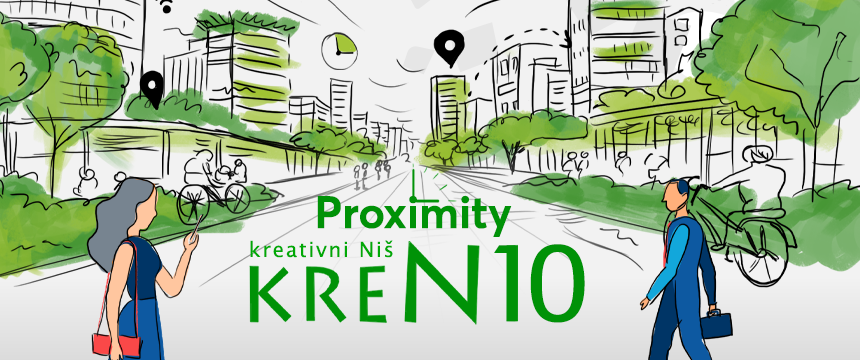
This year we are organizing the 10th edition of the KreNI conference and the topic will be: Proximity
The proximity economy represents a paradigm shift towards local and community-centric economic models, emphasizing short value chains, local production and consumption, and human-centric urban design. At its core is the concept of the '15-minute city', where residents can access all essential services and amenities within a 15-minute walk or bike ride, fostering convenience, sustainability, and community cohesion.
Key to the success of the proximity economy is diverse enabling 'proximity hubs' such as cities, local communities, community-led initiatives, business clusters, and public-private partnerships. These hubs serve as catalysts for innovation, collaboration, and inclusive economic growth, driving the transition toward a more resilient and people-centred economic landscape.
During the conference our focus will be on Proximity in:
1) Culture and creative industries (In the context of culture and creative industries, proximity fosters vibrant artistic ecosystems where individuals and organizations interact, exchange ideas, and collaborate on projects. It encourages the development of local talent, the preservation of cultural heritage, and the creation of unique, place-based expressions of creativity. Proximity in culture and creative industries also promotes community engagement and social cohesion by providing opportunities for residents to participate in cultural events, support local artists, and contribute to the cultural identity of their neighbourhoods and cities. Additionally, it can have economic benefits by stimulating tourism, attracting investment, and creating job opportunities within the cultural sector.)
2) Local green deals (Identifying and implementing environmentally sustainable practices that are tailored to the specific needs and resources of local communities. This may include initiatives such as community gardens, local renewable energy projects, and decentralized waste management systems. Designing cities and communities with a focus on human well-being and environmental sustainability. This includes creating walkable neighbourhoods, promoting active transportation options like walking and cycling, and enhancing green spaces for recreation and biodiversity. Engaging local residents, businesses, and stakeholders in the development and implementation of green initiatives.)
3) Smart cities and digitalisation (Smart cities and digitalization within the concept of proximity focus on creating urban environments where services, amenities, and opportunities are conveniently located close to residents. It aims to support technology enhancing accessibility, efficiency, and sustainability, ultimately improving the quality of life for all residents.)
WELCOME ON THE KRENI BOARD!